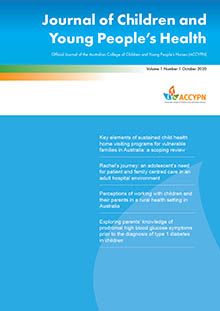Objectives To identify evidence underpinning key elements that contribute to best practice models for sustained child health home visiting for families with vulnerabilities in Australian settings.
Background A comprehensive literature review conducted by the Australian Research Alliance for Children and Youth (ARACY) in 2012 identified that evidence to support a best practice child health home visiting model in Australia was lacking or contradictory. Home visiting programs require a rigorous evidence base to support the inclusion of key elements necessary to promote optimal outcomes for families experiencing parenting challenges.
Study design and methods This scoping review utilised the nine-step Joanna Briggs Institute scoping review framework. PubMed, CINAHL, Maternity and Infant Care, Google Scholar and government sites were searched for eligible publications between January 2011 and December 2019 that reported on Australian-based home visiting programs provided by child health nurses aimed to support families with vulnerabilities.
Results The importance of factors associated with effective programs, identified in the original ARACY reviews, were reinforced, together with key program elements including – a positive nurse relationship, family partnership, information tailored to the family’s needs, continuity of carer, and programs targeted to families most likely to benefit. Being embedded in universal services, program flexibility and nurse availability and responsiveness were also identified as key elements by contemporary programs.
Conclusion This review identified contemporary evidence supporting key elements for successful home visiting programs and demonstrated the importance of maintaining program content and intervention fidelity in order to achieve intended outcomes.



